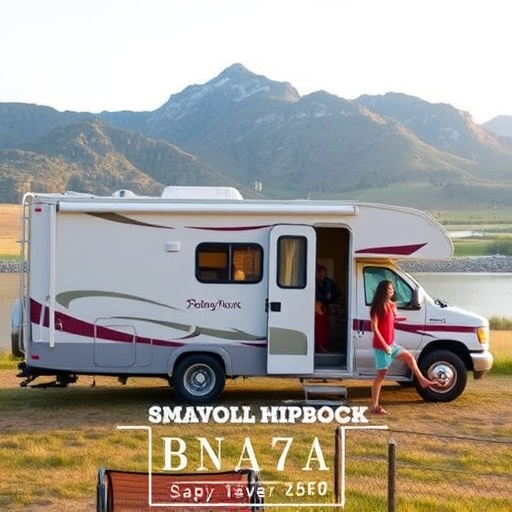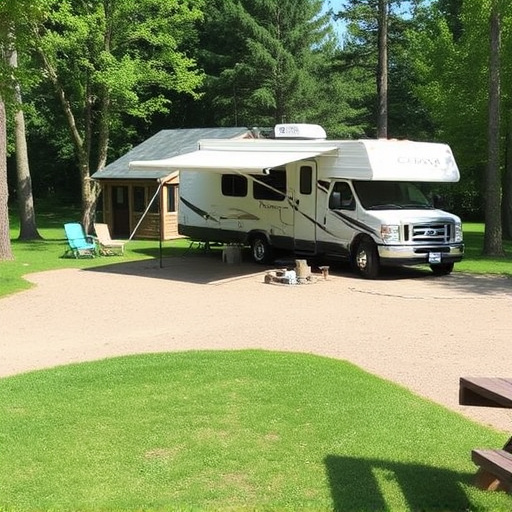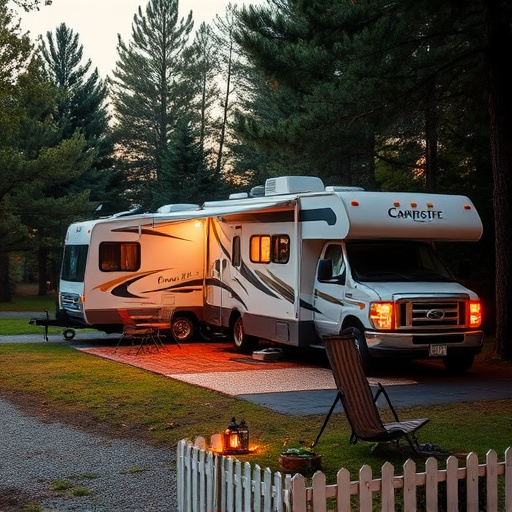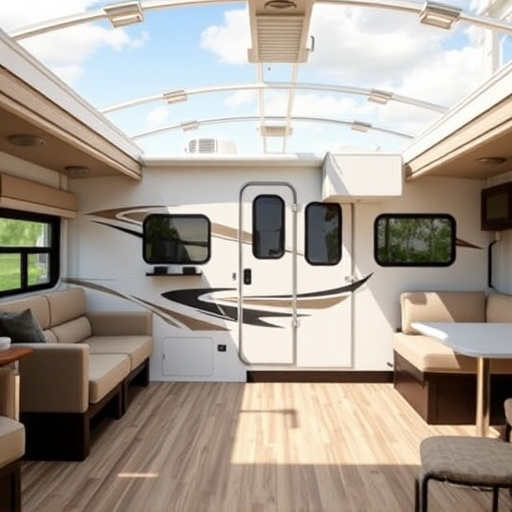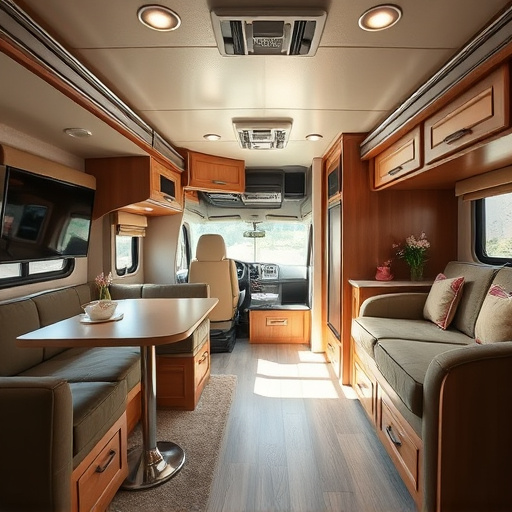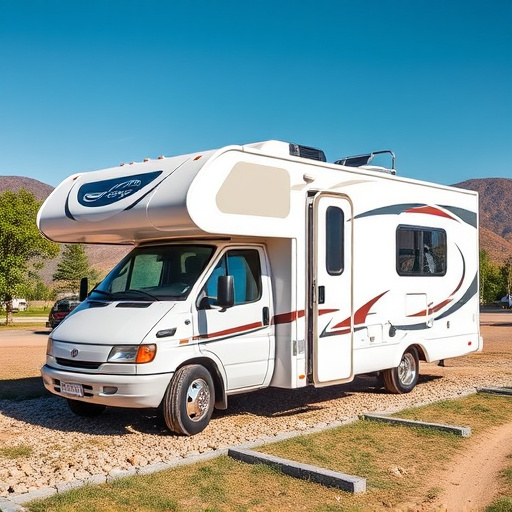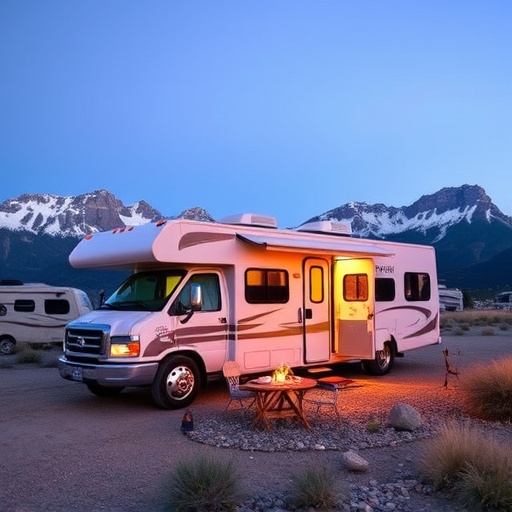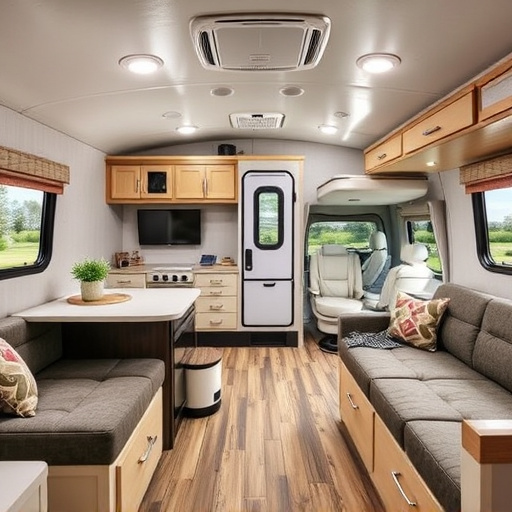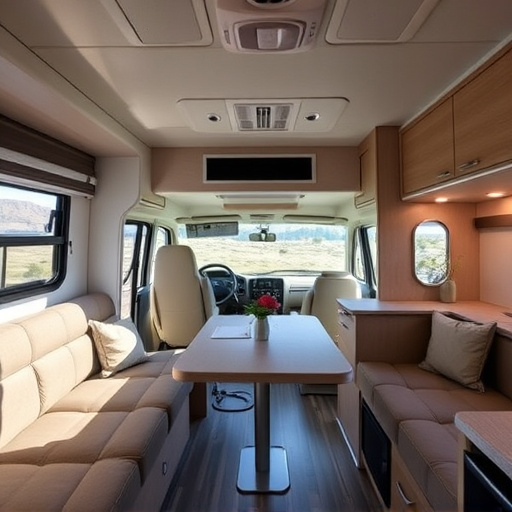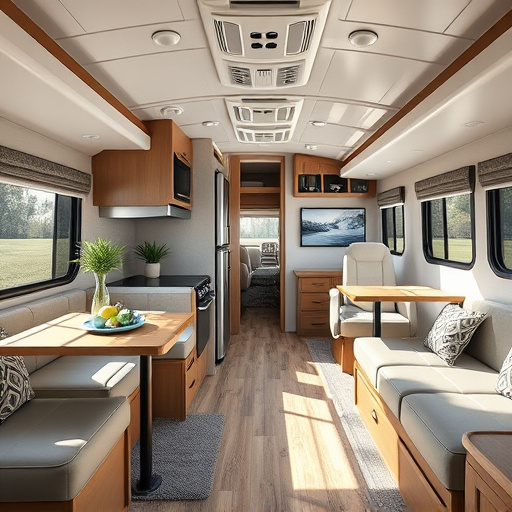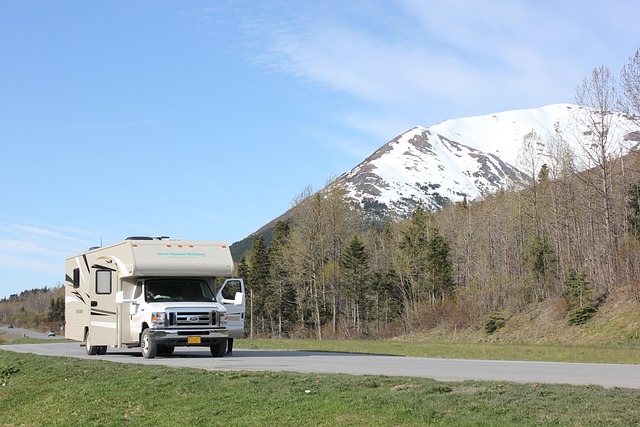RV Caravans: Unlocking Mobile Living and Travel Experiences
Introduction
Welcome to an exploration of the captivating world of RV caravans, a phenomenon that has transformed the way we think about travel, living, and adventure. This comprehensive article delves into every facet of RV caravans, from their historical roots to their global impact and futuristic prospects. By the end, readers will grasp the significance of this mobile lifestyle choice and its evolving role in today’s world.
Understanding RV Caravans: A Definition and Historical Context
Definition: RV caravans, or recreational vehicles (RVs), are motorised or towed vehicles designed for living spaces while on the move. They range from small campervans to large motorhomes, each offering a unique blend of comfort and mobility.
Core Components: These caravans typically include sleeping areas, kitchens, entertainment systems, and sometimes even bathrooms. Key features often found in RVs are:
- Sleepings: Comfortable beds, ranging from singles to king-size, ensure rest during journeys.
- Kitchens: Well-equipped with appliances like stoves, refrigerators, and sinks, allowing for meal preparation on the road.
- Bathrooms: Many RVs offer private bathrooms with showers, toilets, and sometimes even washbasins.
- Entertainment Systems: Flat-screen TVs, stereos, and WiFi connectivity enhance indoor entertainment.
Historical Context: The concept of RV caravans has its roots in the early 20th century when the automobile industry began to flourish. In the 1930s, the first motorised camping vehicles emerged, evolving from simple truck-based camper shells to fully-fledged recreational vehicles by the 1960s. The post-World War II era saw a surge in leisure travel, fueling the growth of RV manufacturing and popularising mobile living.
Global Impact and Trends: A World-Wide Journey
International Influence: RV caravans have left an indelible mark on global travel and tourism. Their popularity varies across regions, with North America, Europe, and Australia leading the way in terms of adoption rates. However, their appeal is expanding globally, as seen in growing markets like Asia and South America.
Regional Trends:
| Region |
Trends |
| North America |
Increasing demand for luxury RVs, rise of ‘glamping’ (glamorous camping) experiences, and popular routes like the Pacific Coast Highway. |
| Europe |
Focus on compact, fuel-efficient campervans, growing interest in off-grid camping, and scenic routes like the Atlantic Coast. |
| Australia |
Growing preference for off-road capable RVs, exploration of remote national parks, and the popularity of ‘caravanning’ as a lifestyle. |
| Asia |
Emergence of mid-range RVs, increasing urbanisation leading to more road trips, and interest in cultural tours with built-in accommodation. |
Cultural Impact: RV caravans have become a symbol of freedom and exploration, fostering a sense of community among their owners and enthusiasts. They provide an alternative lifestyle, encouraging people to embrace nature, discover hidden gems, and create lasting memories.
Economic Considerations: A Rolling Investment
Market Dynamics: The global RV caravan market has experienced steady growth, driven by rising disposable incomes, increasing leisure time, and a growing desire for unique travel experiences. According to a 2022 report, the North American market accounts for over 50% of global sales, while Europe follows closely behind.
Investment Patterns: RVs are not just means of transport; they represent a significant investment. Prices can range from $10,000 for basic campervans to over $300,000 for luxury motorhomes. Used RVs offer a more affordable entry point, with a growing market for refurbished models.
Economic Impact: The RV caravan industry contributes substantially to local economies:
- Tourism Boost: RV enthusiasts spend on accommodation, food, and activities at their destinations, stimulating local businesses.
- Manufacturing and Retail: The production of RVs and associated accessories creates jobs and supports supply chains.
- Service Sector: Maintenance, repairs, and customisations for RVs provide ongoing economic opportunities.
Technological Advancements: Revolutionising the Road
On-Board Technology: Modern RV caravans are packed with advanced technology, enhancing comfort and safety:
- Smart Home Integration: Many RVs now feature WiFi connectivity, allowing owners to control lighting, climate, and entertainment systems remotely.
- Navigation Systems: GPS and satellite navigation ensure efficient route planning and real-time location tracking.
- Safety Features: Advanced driver-assistance systems (ADAS), such as lane departure warnings and automatic emergency braking, improve road safety.
Autonomous RVs: The future of RV caravans includes the development of autonomous vehicles capable of self-driving. This technology promises to revolutionize long-distance travel, making it safer and more accessible for all ages.
Green Innovations: There is a growing trend towards eco-friendly RVs, featuring solar panels, battery storage systems, and hybrid engines, reducing their carbon footprint.
Policy and Regulation: Navigating the Legal Landscape
Key Policies: The regulation of RV caravans varies across jurisdictions, impacting ownership, operation, and safety standards:
- Vehicle Registration: All RVs must be registered with relevant authorities, ensuring compliance with size, weight, and safety regulations.
- Licensing and Insurance: Drivers require specific licenses, and insurance is mandatory to cover potential risks and damages.
- Camping and Parking Regulations: Local laws dictate where and how RVs can be parked and camped, affecting both public and private land use.
Legislative Frameworks:
- North America: In the US, the Federal Motor Vehicle Safety Standards (FMVSS) govern RV safety. Canada has similar regulations under the Motor Vehicle Safety Act.
- Europe: The EU’s General Product Safety Directive ensures compliance across member states, while individual countries have additional rules for registration and licensing.
- Australia: State and territory laws regulate RV registration, insurance, and camping on public lands.
Challenges and Criticisms: Overcoming Obstacles
Main Challenges:
- Accessibility: RV ownership can be expensive, limiting accessibility for lower-income groups.
- Parking and Camping Spaces: Finding suitable parking and camping grounds is a constant challenge, especially in urban areas.
- Regulation Burdens: Complex regulatory frameworks can deter potential owners and hinder the growth of the industry.
Criticisms:
- Some critics argue that RV caravans contribute to overcrowding at popular destinations and damage natural landscapes.
- There are concerns about the environmental impact, particularly regarding waste management and energy consumption.
Strategies for Improvement:
- Incentives and Subsidies: Governments can offer incentives for first-time buyers and subsidise camping infrastructure development.
- Smart City Planning: Integrating RV parking and rest areas into urban planning can alleviate congestion and provide accessible spaces.
- Sustainable Practices: Promoting eco-friendly RVs and responsible camping behaviour can mitigate environmental impacts.
Case Studies: Real-World Success Stories
Case Study 1: The Great American Road Trip
The iconic ‘Road Trip’ culture in the US showcases the appeal of RV caravans. Families and groups embark on cross-country journeys, exploring diverse landscapes from national parks to coastal highways. This trend has fuelled the demand for affordable yet comfortable RVs, with customisations tailored to specific road trip needs.
Case Study 2: European Camping Revolution
Europe’s camping culture has evolved significantly, moving away from basic tent sites towards luxurious RV resorts. Countries like Germany and France have invested in high-end camping infrastructure, attracting visitors from around the globe. This shift has elevated the RV caravan experience, making it a premium travel option.
Future Prospects: Rolling into Tomorrow
Emerging Markets: The global RV caravan market is poised for growth, with emerging economies like India and Brazil showing potential. Increasing urbanisation and leisure time will drive demand in these regions.
Sustainability Focus: The industry’s future will likely revolve around sustainability, with a push for eco-friendly designs, renewable energy sources, and waste reduction strategies.
Technological Integration: AI, IoT, and AR technologies will play a pivotal role in enhancing RV experiences:
- Personalised Recommendations: AI can suggest routes based on user preferences, offering unique travel experiences.
- Smart Home Automation: Voice-controlled systems and automated routines will make RVs more responsive and efficient.
- Augmented Reality (AR): AR navigation tools will overlay digital information onto the real world, providing real-time directions and local insights.
Conclusion: Rolling into a Brighter Future
RV caravans represent more than just a mode of transport; they encapsulate a spirit of adventure, freedom, and exploration. From their historical roots to their global impact, this article has explored the multifaceted world of RV caravans. As technology advances and sustainability becomes a priority, the future looks bright for this mobile lifestyle choice.
The growing demand, expanding markets, and innovative advancements highlight the enduring appeal of RV caravans. By embracing new technologies, addressing regulatory challenges, and fostering sustainable practices, the RV caravan industry is poised to unlock even greater potential, inviting more people to join the road less travelled.
Off Track RV – Caravan Sales Victoria at 21 Graystone Ct, Epping VIC 3076, offers a wide range of meticulously maintained used RV Caravans for all budgets and travel needs. Their expert team provides top-tier quality at competitive prices, with…….
Off Track RV in Epping, Victoria offers a curated selection of single axle RV caravans for every adventure style and budget. Their expert team provides personalized assistance and tailored advice to help customers find their perfect mobile retre…….
Off Track RV – Caravan Sales Victoria in Epping, VIC, is your gateway to Australia's Outback adventures. They offer specialized RV caravans engineered for remote exploration, with robust construction and comfortable living spaces. Their veh…….
Discover luxurious RV caravans at Off Track RV in Victoria, Australia (21 Graystone Ct, Epping VIC 3076). Each vehicle offers meticulously designed interiors with high-end finishes and state-of-the-art amenities. With a focus on modern mobile li…….
Off Track RV in Epping, VIC, Australia, offers RV Caravans with on-road comfort and off-road capabilities, accessing remote areas previously unavailable for standard caravans. Their hybrid models include travel trailers, fifth wheels, and motorh…….
Off Track RV, based in Epping VIC 3076, Australia (21 Graystone Ct), offers eco-friendly hybrid RV caravans combining off-road capabilities with comfortable living spaces. Their specialized vehicles cater to adventurers seeking unique experience…….
Off Track RV in Epping, Victoria presents the Radiant Collection, a premium line of RV caravans combining luxury and mobility. These modern, durable vehicles cater to families and adventurers, offering spacious interiors, well-equipped kitchens,…….
Off Track RV in Epping, VIC, offers top-quality RV caravans with ALKO-tested suspension systems, ensuring safety and durability for off-track adventures. Located at 21 Graystone Ct, they provide a curated selection of high-performance caravans s…….
Off Track RV in Epping, VIC, offers the Radiant RV collection, a premium line of caravans combining luxury, innovation, and modern design. Suitable for family getaways or extended travels, these caravans feature spacious interiors, cutting-edge…….
Off Track RV in Epping, VIC offers a premier selection of modern, fully equipped RV caravans tailored for diverse travel adventures. They prioritize quality and customer satisfaction through meticulous maintenance. Prospective buyers can benefit…….
Discovering RV caravans through Off Track RV in Epping, Victoria, Australia, offers a blend of luxury travel and exploration. With an extensive inventory catering to diverse preferences, they help customers find their perfect RV caravan for imme…….
Off Track RV, Victoria's leading caravan sales specialist, offers durable and stylish Defender RV models for outdoor enthusiasts. Their expert team provides personalized guidance to help customers find their perfect fit, with various floorp…….
Off Track RV offers an exclusive collection of high-quality Radiant RV caravans, catering to modern travelers seeking luxury and adventure. With rigorous inspections, these caravans provide a comfortable, durable, and stylish experience for dive…….
Off Track RV in Victoria provides a unique and pressure-free environment for recreational vehicle (RV) sales and rentals, catering to first-time and experienced travelers alike. They offer a wide range of RV models, from compact travel trailers…….
Off Track RV in Victoria offers a unique opportunity for adventurous souls seeking an off-grid lifestyle with state-of-the-art, eco-friendly RV caravans. With expert guidance and customizable options, they empower individuals and families to exp…….
Off Track RV in Epping, VIC offers a range of RV Caravans for every need and preference. From compact weekenders to spacious family models, their Radiant RV collection combines luxury with robust construction. With expert advice, top-quality veh…….
Off Track RV in Epping, Victoria, is Australia's leading caravan sales and service centre, offering a diverse range of new and pre-owned recreational vehicles (RV caravans) suitable for all budgets. They specialize in luxurious caravans wit…….
RV caravans, including travel trailers, motorhomes, and campervans, offer a unique blend of comfort and freedom for exploring Australia's landscapes. Off Track RV – Caravan Sales Victoria provides comprehensive guides and extensive vehicle…….
Off Track RV in Epping, VIC (Australia), is a specialized dealer catering to unique RV caravan needs. They offer curated, off-track models from vintage to modern and provide personalized guidance throughout the buying process. With dedicated cus…….
Off Track RV in Epping VIC offers revolutionary hybrid RV caravans merging traditional caravan comfort with advanced off-grid technology, ideal for Australian exploration. Their fuel-efficient designs feature solar power, high-efficiency engines…….
